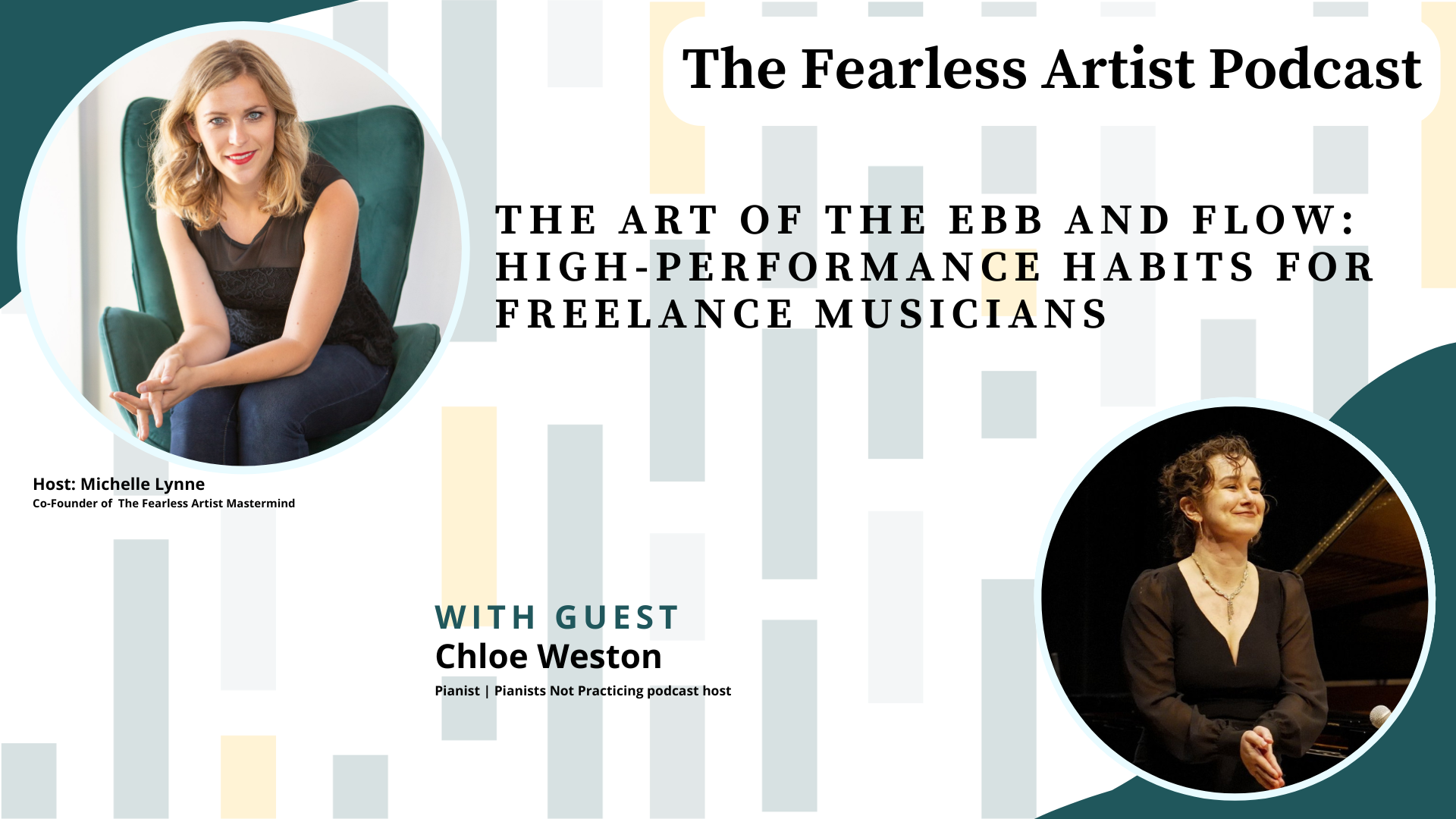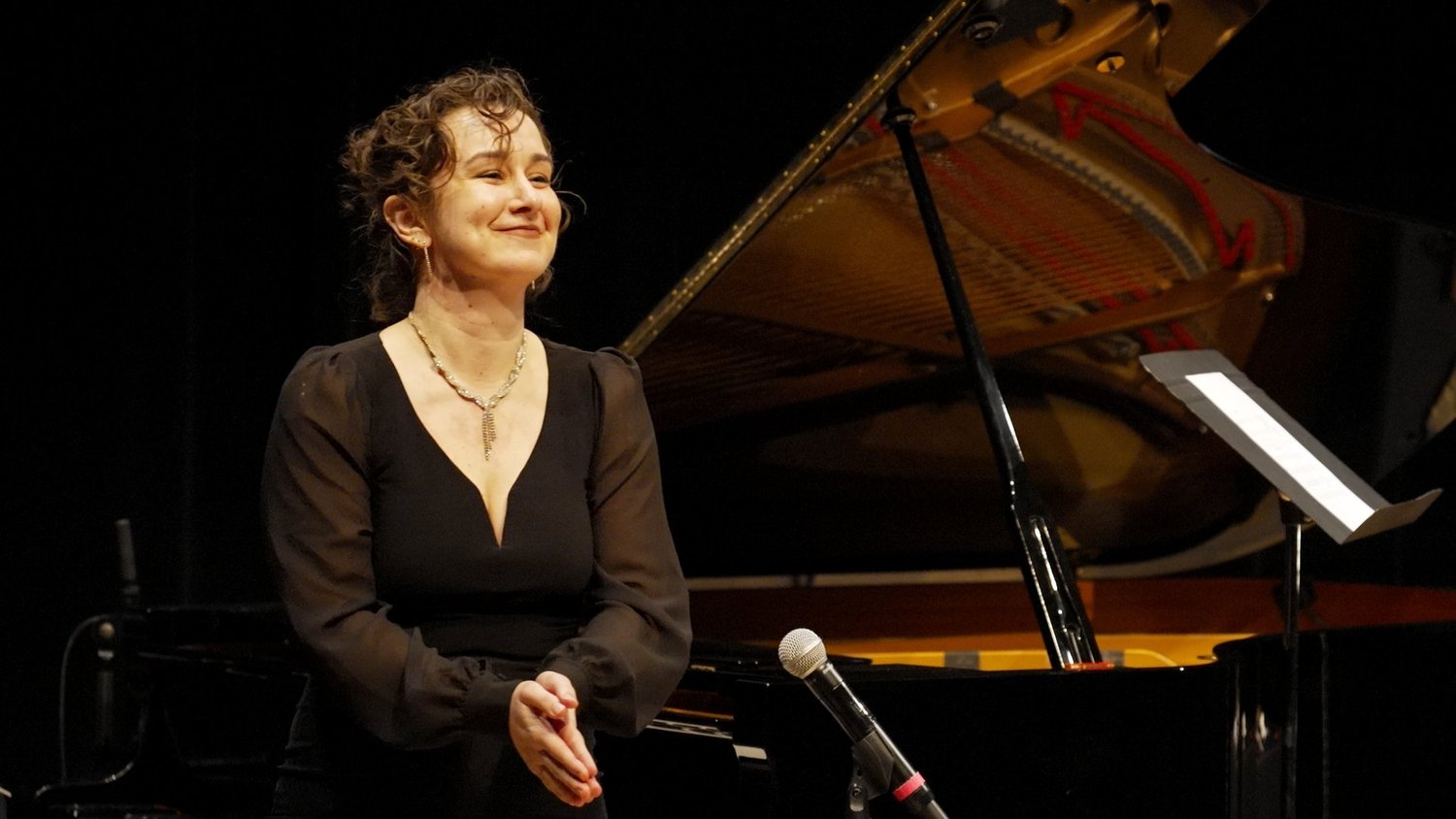The Art of the Ebb and Flow: High-Performance Habits for Freelance Musicians

Guest:
Chloe Weston
Pianist | Pianists Not Practicing Podcast Host
Chloe Weston is a Canadian classical pianist who thrives with effervescent energy on stage sharing her love of music with audiences. A creative artist always excited about the next project she can create with friends, and colleagues – Chloe is on a heart-centered mission to share art and creativity with others through music – conjuring the magic of a shared, suspended moment in time together through live performance. Her compelling performances as soloist, chamber musician and collaborative pianist are driven by this pursuit for connection with others. Her musical endeavours collide with her “artivist” spirit and pursuit to connect across boundaries through her work as a teaching artist. Chloe is dedicated to curating music education and performance in communities close to home and abroad. She has travelled to perform across Canada, the United States, Germany, France, Italy and Spain.
This season, Chloe will be featured as soloist with Kensington Sinfonia in Calgary in the premiere of a concerto written for her by Canadian composer, Mark Limacher, and as soloist with Timmins Symphony Orchestra in a performance of Mozart’s piano concerto no. 23 in A major. She will also be featured in North Bay Symphony’s Chamber Music Series in a performance of Eric Ewazen’s Balade, Pastorale and Dance for piano trio.
Recent performance highlights include a special homecoming performance of Mozart’s piano concerto no. 21 with Dr. Josh Wood and the North Bay Symphony Orchestra featuring new cadenzas written for her by Mark Limacher, and a new production of Saint-Saens’ Carnival of the Animals for two pianists & mime at Festival of the Sound in Parry Sound.
Hailing from North Bay, Ontario, Chloe holds degrees in solo piano performance from the Jacobs School of Music at Indiana University (Performance Diploma) where she studied with Evelyne Brancart, and the Don Wright Faculty of Music at Western University (Bachelors and Masters Degrees) where she studied with Dr. Leslie Kinton and Stéphan Sylvestre. She has participated in masterclasses and festivals across the globe that have further enriched her musical knowledge and have given her the privilege to learn from many wonderful mentors and collaborators.
Chloe enjoys fostering musical education through her work as a teaching artist in residencies with the Festival of the Sound’s Music Scores Outreach program in Parry Sound, Ontario as well as in masterclasses and music festivals for young musicians in the north. In her quest to serve the communities around her, Chloe found an incredible artistic partner in Xenia Concerts, an organization committed to curating Adaptive Concerts designed to be family-friendly events that embrace neurodiversity and disability. Her desire to uplift and support others through music also led her to perform at the High Notes Avante Gala for Mental Health in Richmond Hill in a piano duo with Dr. Shulamit Mor.
Chloe’s musical journey began with ballet, disney and musical theatre, but the piano, and its vast possibilities, captivated her at age 10 and has become her lifelong companion. The endless opportunities to learn and explore through the world of music drive her to continue on her artistic path.

Subscribe to The Fearless Artist Podcast
Intro/Outro music by Michelle Lynne • Episode produced by phMediaStudio, LLC
